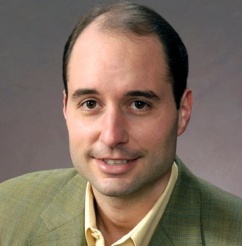Meet Dr Jeffrey Roy
Faculty spotlight
Meet Dr Jeffrey Roy

I always do my best to spark a conversation among the students, irrespective of whether we’re discussing something online or during one of the face-to-face ‘intensive’ sessions.
Leading thinker works with diverse international clients
“Very responsive. Rich and rewarding. Engaging, enlightening, informative and interesting.” Just a small sample of the words students in our program recently used to describe the teaching style of Jeffrey Roy.
The accolades are hardly surprising, given the breadth and depth of Dr. Roy’s career to date.
Public and private sector consulting
A leading thinker on the impact of digital technologies on democracy, public sector governance and public-private interaction, Dr. Roy often works as a consultant to governments, multinational corporations and international organizations including the United Nations and the OECD. The Social Sciences and Humanities Research Council, IBM, Cisco Systems and the Government of Canada and Government of Nova Scotia, meanwhile, are among the many and varied bodies that have funded Dr. Roy’s research during the past decade.
Publishing
Dr. Roy also spends a lot of time writing. The author of scores of chapters, he has also published four books – including his latest, The Service State – Rhetoric, Reality, and Promise. He’s also a featured columnist in Canadian Government Executive magazine.
Teaching, too
After more than a decade teaching at the University of Ottawa, Dr. Roy joined our Faculty of Management in 2006. He attributes the positive student feedback on his courses to two aspects of his approach.
“Firstly,” he says, “I always attempt as much as possible to align theory with one or more of the real world workplace issues my students are facing.
“Secondly, I’ve never been a fan of the passive, linear approach of simply pushing information at people and hoping they’ll engage with it.
“Instead, I always do my best to spark a conversation among the students, irrespective of whether we’re discussing something online or during one of the classroom-based intensives. My priority is to get the students to offer their own insights and also to raise questions and to exchange knowledge among themselves – a key driver of collective learning.
“Essentially, I aim to generate a dialogue – on the basis that this two-way flow is much more likely to achieve understanding,” he says.
